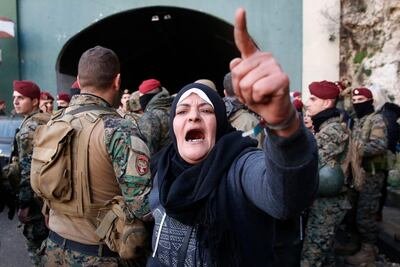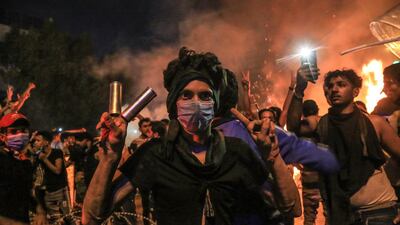The past tends to come back to haunt the Middle East but usually in ways that are far worse for the region. As several large Arab states have declined in recent decades, losing the ability to control their destiny, they have seen a rise in the power of the countries on their periphery – Iran, Israel and Turkey. The consequences have been greater instability, coupled with enhanced domestic discontent.
During the 1950s and 1960s, the region was characterised by what was known as the “politics of axes". Rival Arab capitals competed with each other, a process that took place within the context of the Cold War. This interplay between regional competition at one level and superpower competition at another led to considerable volatility as regional actors sought to subvert their enemies, at times drawing one or the other superpower into this game of nations.
Yet even at the worst of times there was an inter-Arab system in place to manage differences. Never the most effective of institutions, the Arab League nonetheless could function occasionally as a valuable space for Arab consensus. The rhetorical importance of Arab unity also meant that the rivals of yesterday could suddenly reconcile in the name of "Arabness", and even proclaim grand unification plans.
With the end of the Cold War, one superpower – the US – emerged as the dominant player in the region. Even states that had poor relations with Washington had to calculate how America would respond to their behaviour. While this brought some stability, it also exacerbated the Arab world’s worst tendency to allow outside powers to manage its affairs. With the US at the centre of everything, it was much more difficult for Arab states to find their own balance autonomously and take decisions independent of Washington’s priorities.
This contributed to a steady breakdown of inter-Arab cohesiveness, exacerbated by a number of dysfunctional Arab rentier systems characterised by appalling governance and massive corruption. The growing irrelevance of large Arab states, mainly republics, regionally was accompanied by a rising sense of domestic discontent, as states seemed locked in political and economic structures benefiting an elite at the expense of society.
The dislocation and conflicts that ensued, however, created openings for the region’s peripheral states to exploit Arab shortcomings. It allowed Iran to expand militias in a fragmented society such as Lebanon in the 1990s, before repeating the experience in a multi-sectarian Iraq in the past decade and in Syria after the uprising began against the Assad regime in 2011.
It also allowed Turkey to make inroads into a number of Arab countries and particularly Libya today. Ankara's efforts to advance its interests in offshore gas in the Eastern Mediterranean have been a prime motive for assisting the government of Fayez Al Sarraj, culminating in the recent decision to send Turkish troops to Libya.
Israel, in turn, has regarded both Iran and Turkey as strategic challengers, even if there is no comparison between the two in terms of Israeli security. Iran will always represent a far greater threat from an Israeli perspective than Turkey, even if one should not underestimate Israeli misgivings about Recep Tayyip Erdogan, the Turkish president. Last week, Israel’s signing of an agreement for a gas pipeline with Cyprus and Greece illustrated the extent of these differences.
So we appear to be in a situation where the Middle East is facing a new “politics of axes", albeit where the dominant powers are non-Arab states on the region’s periphery. A number of Arab states have become pawns in this game but otherwise seem to have had little ability until now to affect outcomes.

Over and above these rivalries are two major international powers, the US and Russia. They may have been the enemies of the Cold War but in reality, there are few similarities between that period and today. Russia is not the USSR and its activities in the Middle East have been mostly characterised by opportunism. However, Moscow's ability to act effectively has made it a serious regional contender of Washington.
Adopting too deterministic a view of Arab futility would be mistaken. As the negative Iranian reaction to protests in Iraq and Lebanon made clear, societies in the region have the latitude to impose change on the peripheral powers by opposing the Arab leaders or parties who collaborate with them. That is precisely why Iran’s allies in both countries were so keen to stifle the protests, and in Iraq appear to have been behind the killing of unarmed demonstrators.
The larger picture, however, is grimmer. For as long as the region is shaped by outside powers, it will remain unstable and relatively marginal. Whereas Arabs railed against Western colonialism in the past, today they must do so against the constant intervention and superciliousness of their non-Arab neighbours.
However, more alarmingly for these Arab states, their pervasive insignificance in foreign affairs has domestic repercussions. Arabs who see how weak their states are in the region are more likely to revolt against their leaders because of their mismanagement of internal affairs. Both levels of failure feed into each other, making for societies fed up with political elites that project only mediocrity. These are the dispiriting dynamics that make revolts more likely.
Michael Young is editor of Diwan, the blog of the Carnegie Middle East programme, in Beirut


